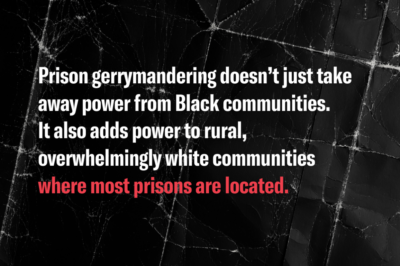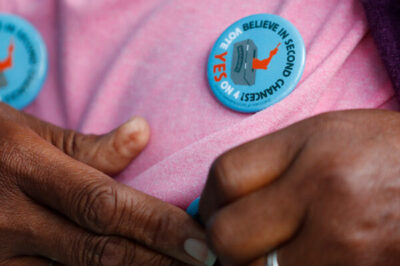ACLU Urges PA to Proceed with Caution in Implementing New Federal Election Law
FOR IMMEDIATE RELEASE
PHILADELPHIA — Furthering its commitment to protect the fundamental right to vote and to have one’s vote counted fairly and accurately, the American Civil Liberties Union of Pennsylvania today urged state lawmakers to act carefully in implementing the new federal election law, the Help America Vote Act of 2002.
Larry Frankel, Legislative Director of the ACLU of Pennsylvania, testified in Harrisburg at a hearing of the Pennsylvania Joint Select Committee to Examine Election Issues. While noting the ACLU’s support for some aspects of the complex legislation, Frankel focused on several of the problematic provisions of the new law.
“Unfortunately, the federal legislation contains a number of changes to voter registration requirements that could diminish the right to vote and create new burdens for voters,” said Frankel during his testimony.
Some of the ACLU’s numerous concerns about the new legislation include the voting rights of the homeless; logistics of implementing the rules for voters who register by mail; adequacy of training for all people working in polling places and election offices; uniformity of implementation and enforcement; and efforts directed at educating the public.
During his testimony, Frankel specifically cited the potential problems related to special rules for voters who register by mail. The federal act requires that voters registering by mail supply driver’s license numbers and social security numbers on voter registration forms and answer questions about citizenship status on those forms.
Frankel also discussed how Pennsylvania could implement the new federal law without disenfranchising and confusing voters.
“The recent experience in Florida reminds us of the kinds of problems that can occur if reform is not done properly,” said Frankel. “Modernizing and updating election law should be in everyone’s interest and should keep the voters’ needs in the forefront.”
Frankel’s testimony follows:
TESTIMONY ON THE
“HELP AMERICA VOTE ACT OF 2002”
PRESENTED BY
LARRY FRANKEL, LEGISLATIVE DIRECTOR
AMERICAN CIVIL LIBERTIES UNION OF PENNSYLVANIA
OCTOBER 24, 2002
TO THE JOINT SELECT COMMITTEE TO
EXAMINE ELECTION ISSUES
HARRISBURG, PENNSYLVANIA
Last week the United States House of Representatives and the United States Senate passed the “Help America Vote Act of 2002.” President Bush has indicated that he will sign the legislation. This legislation is in response to the 2000 election debacle in Florida.
The legislation authorizes (but does not appropriate) billions of dollars for new voting equipment, voting machines that are fully accessible to all disabled persons, improved election administration and poll worker training.
The legislation requires states to create centralized voter registration systems and to have in place systems for voters to check their ballots before leaving the polling place (“second chance voting”) and provisional ballots (allowing a voter whose name does not appear on registration lists to vote – the provisional ballot would be counted if the voter’s registration is later verified.)
The American Civil Liberties Union of Pennsylvania believes that the providing of money for the purchase of new voting equipment, making electoral participation truly meaningful for persons with disabilities, improving election administration and poll worker training, second chance voting and provisional ballots are real steps forward in promoting the fundamental right to vote.
Unfortunately, the federal legislation also contains a number of changes to voter registration requirements for new registrants that could diminish the right to vote and create new burdens for new voters. Among the most significant of these changes are:
a. Special rules for voters who register by mail. The first time such voters go to the polls, they will be required to provide a current photo identification card or some other document, such as a utility bill or bank statement, that includes the voter’s name and address. The legislation appears to make this requirement inapplicable if the registrant supplies a copy of the photo identification or other identifying document with the mailed-in registration.
b. All new voters no matter how they register must supply a driver’s license number, or the last 4 digits of their social security number. In the event that a voter does not have either number, the state shall assign a number to identify the registrant for voter registration purposes. State officials are then supposed to use other databases to verify the accuracy of the number supplied.
c. The contents of the mail voter registration form shall include the question “Are you a citizen of the United States of America?” and there shall be boxes for the applicant to indicate whether or not he is a citizen. The law states that if an applicant fails to answer this question, the “registrar shall notify the applicant of the failure and provide the applicant with an opportunity to complete the form in a timely manner to allow for the completion of the registration form prior to the next election for Federal office (subject to State law).”
Figuring out how to comply with these new requirements is left up to the states. Thus, the upcoming task for those concerned with voter registration, the voting procedure, and greater access for people with disabilities and language minorities, will be to make sure that the state legislation, policies and procedures implementing the Help America Vote Act of 2002, really advance the goal of guaranteeing every citizen’s right to vote.
We are still trying to fully understand the federal law and what changes may need to be made. I have been in touch with some of the other organizations I know have an interest in this legislation because they represent the homeless, people with disabilities, racial and ethnic minorities, and people who may not already have government issued identification. All of us are still assessing the impact of the Help American Vote Act of 2002 and anything I say today is based on a preliminary analysis.
I have compiled several questions that the ACLU believes should be carefully studied before legislation is passed to comply with these new requirements:
1. How will Pennsylvania make sure that homeless people and people who are not in their own residences due to physical abuse or financial hardship are not deprived of their right to register to vote and cast their ballots?
2. How will the state handle the logistics associated with new registrations by mail – how will this be indicated on lists of voters sent to polling places, how will election officials in polling places be trained to comply with the law, how will lists be updated once a voter has voted so that he or she will not be required to produce identification in future elections, how will the various databases account for discrepancies due to name changes as a result of marriage or divorce or mistakes in the recording of data?
3. How will the provisional ballot and second chance voting systems be developed and implemented?
4. What privacy protections will be in place to protect the confidentiality of residences and social security numbers?
5. How will states guarantee a uniform manner of dealing with new registration forms (including forms that are incomplete) so that minority voters are not discriminated against?
6. Can Pennsylvania limit the implementation of the registration requirements until the money from the federal government kicks in and the laws are passed implementing the provisional ballot, second chance voting, and accessibility provisions of the law?
7. What can Pennsylvania do to make sure that the entire administration of elections is carried out in a consistent, fair and even-handed manner in every county and every polling place?
8. How can Pennsylvania make sure that there is adequate funding for the state and local election administrators so that the provisions regarding registration are properly carried out and voters are not deprived of their rights due to bureaucratic errors?
9. What kind of public education requirements can be imposed on election officials so that there will be little confusion as to the real requirements of the new law?
We hope that the provisions making elections fully accessible to all citizens will be fully implemented so that every voter who wishes to vote will be able to privately and independently exercise his or her right to vote. As I understand the new federal law, each polling place must have at least one machine accessible to the disabled including those who are blind or visually impaired. It is my understanding that the Department of State has acknowledged that voting equipment that would meet this requirement is already permitted under Pennsylvania law. This should be confirmed and if statutory changes are necessary, then they should be done in consultation with representatives of the affected voters. There remains the question of how Pennsylvania will pay for each polling place to be properly equipped.
In preparing for this hearing I reviewed a variety of statements issued by a wide range of civil rights organization in response to the federal legislation. Some of those groups supported the legislation, while others opposed it. One consistent criticism of virtually every organization related to the weak and cumbersome enforcement mechanisms in the federal law. The Help America Vote Act relies solely on the Department of Justice for enforcement in federal courts. Aggrieved voters are not given the ability to seek a private remedy. The ACLU believes that Pennsylvania should consider giving its citizens a private remedy to enforce the promises of greater accessibility and fair voting procedures contained in the Help America Vote Act of 2002.
In closing, I urge you to go carefully and slowly in determining how to implement the provisions of the new law. The recent experience in Florida reminds us of the kinds of problems that can occur if reform is not done properly. The ACLU hopes that you will seek to fully understand and address the issues that are being raised and that adequate time and resources will be devoted to educating the public and election workers about the provisions of the new federal law as well as any new laws enacted by Pennsylvania to comply with the new federal law.
Modernizing and updating election law should be in everyone’s interest and should keep the voters’ needs in the forefront. The ACLU looks forward to working with you in fashioning the best set of election laws for all Pennsylvanians.
Stay Informed
Every month, you'll receive regular roundups of the most important civil rights and civil liberties developments. Remember: a well-informed citizenry is the best defense against tyranny.



